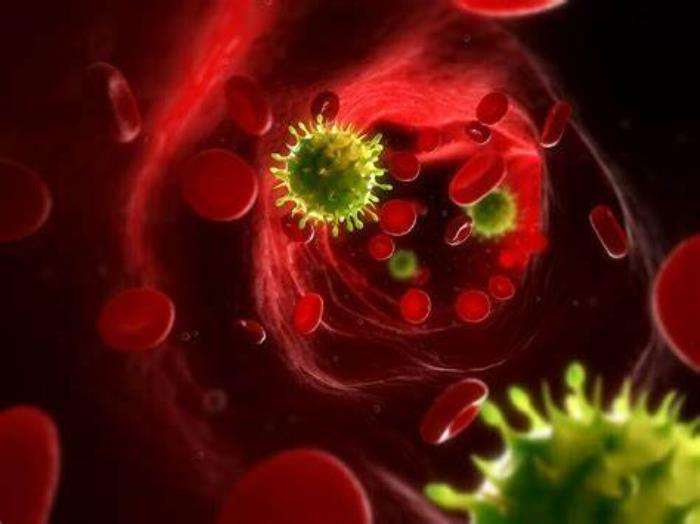Infection is a significant risk following intestine transplant surgery due to the use of immunosuppressive medications, which weaken the immune system to prevent organ rejection. This increased susceptibility makes post-surgical infection prevention and monitoring critical for successful recovery and long-term outcomes.
Medical disclaimer: This content is for general awareness and does not replace a doctor’s consultation. For diagnosis or treatment decisions, consult a qualified specialist.
Common Types of Infections in Intestine Transplant Patients
Intestine transplant recipients are vulnerable to a variety of infections, including bacterial, viral, and fungal infections. Common infections include urinary tract infections, pneumonia, gastrointestinal infections, and infections at the surgical site. The risk is heightened during the early months after surgery when immune suppression is most intense.
The Role of Immunosuppressive Medications in Infection Risk
Immunosuppressive medications, which are essential for preventing organ rejection, also increase the risk of infections by impairing the body's ability to fight off pathogens. These medications suppress the immune system, making it more difficult for the body to mount an effective defense against infections, especially in the immediate post-transplant period.

Preventing Infections: Pre-Surgical and Post-Surgical Care
Infection prevention strategies begin before surgery, including vaccination, the use of antibiotics, and optimizing general health. Post-surgery, careful monitoring, proper wound care, and continued prophylactic antibiotic use are vital. Patients must also practice good hygiene, avoid exposure to potential pathogens, and adhere to medical guidelines to minimize infection risks.
Signs and Symptoms of Infection After Intestine Transplant Surgery
Early detection of infection is crucial to prevent severe complications. Symptoms of infection may include fever, chills, redness or swelling at the surgical site, abdominal pain, changes in bowel movements, fatigue, or difficulty breathing. Any of these signs should be promptly reported to healthcare providers for evaluation and treatment.
The Importance of Early Detection and Treatment of Infections
Timely detection and treatment of infections are essential to avoid complications, including organ rejection or graft failure. Regular blood tests, imaging studies, and physical assessments help identify infections early, enabling prompt treatment. Delaying intervention can lead to serious consequences, including sepsis or multi-organ failure.
Managing Bacterial Infections Post-Transplant
Bacterial infections in intestine transplant patients are typically managed with targeted antibiotic therapy, depending on the type of infection identified. Infections may affect various systems, including the respiratory tract, gastrointestinal system, and bloodstream. It’s crucial to adjust the treatment plan based on sensitivity testing and the patient's ongoing immune response to avoid complications.
Fungal Infections and Their Impact on Intestine Transplant Recovery
Fungal infections are a significant concern after intestine transplantation, particularly due to immunosuppressive therapy that weakens the immune system. These infections can delay recovery, increase the risk of graft rejection, and complicate post-transplant care. Common fungal infections include Candida and Aspergillus, which require prompt diagnosis and treatment.
Viral Infections After Transplant: Risks and Management Strategies
Viral infections such as cytomegalovirus (CMV) and Epstein-Barr virus (EBV) are common in intestine transplant patients due to immunosuppression. These infections can lead to severe complications like organ rejection or graft failure. Antiviral therapies, regular screenings, and careful monitoring of viral load are essential for managing these risks.
The Role of Antibiotics in Infection Prevention and Treatment
Antibiotics play a critical role in preventing bacterial infections post-transplant. They are often administered prophylactically to reduce the risk of infections, especially during the initial post-surgical period. However, the use of antibiotics needs to be carefully managed to avoid the development of antibiotic-resistant infections.
The Impact of Infections on Graft Function and Survival
Infections can significantly impact graft function and patient survival by impairing the transplanted organ's ability to function properly, causing inflammation, and increasing the risk of rejection. Infections need to be treated promptly to preserve the function of the transplanted intestine.
Managing Infections in Pediatric Intestine Transplant Recipients
Pediatric patients undergoing intestine transplantation are particularly vulnerable to infections due to their developing immune systems. Special considerations, such as age-appropriate dosing of medications, close monitoring for signs of infection, and preventive care strategies, are essential in managing infections in this population.

The Role of Probiotics in Infection Control Post-Transplant
Probiotics can help restore a healthy gut microbiome and may play a role in preventing gastrointestinal infections post-transplant. They can improve digestion, support the immune system, and reduce the incidence of infections like Clostridium difficile, which is more common in immunocompromised patients.
The Importance of Hygiene and Infection Control Measures
Strict hygiene practices, including handwashing and sterilization of medical equipment, are critical in preventing infections after intestine transplantation. Infection control measures in hospitals and at home can significantly reduce the risk of post-surgical complications.
How to Minimize the Risk of Gastrointestinal Infections After Transplant
Minimizing the risk of gastrointestinal infections after transplant involves careful monitoring for signs of infection, use of prophylactic antibiotics, maintaining a clean environment, and avoiding exposure to contaminated food or water. Early diagnosis and treatment are essential for preventing serious complications.
Managing Catheter-Related Infections in Intestine Transplant Patients
Catheter-related infections are a concern in intestine transplant recipients who require central venous access for nutrition or medication. Proper sterile techniques during insertion and maintenance, along with regular monitoring for signs of infection, can help manage and reduce the risk of catheter-associated infections.
The Role of Vaccinations in Preventing Post-Surgical Infections
Vaccinations are a key preventive strategy in reducing the risk of infections after intestine transplantation. Vaccines for pneumococcus, influenza, hepatitis, and other diseases should be administered before surgery whenever possible, and certain vaccinations may be required after transplantation to protect the patient from infections.
Post-Surgical Infections and the Risk of Organ Rejection
Post-surgical infections, if not properly managed, can trigger immune responses that lead to graft rejection. Infections are one of the leading causes of early transplant failure, highlighting the need for vigilant monitoring and prompt intervention.
Long-Term Infection Risks in Intestine Transplant Recipients
Long-term infection risks include chronic viral infections, fungal overgrowth, and recurrent bacterial infections. The prolonged need for immunosuppressive therapy increases susceptibility to infections, requiring lifelong vigilance and ongoing treatment to prevent complications.
The Impact of Intestine Transplant on Digestive Health
Discover the impact of intestine transplant on digestive health. This article explores how intestine transplants restore normal digestive function, improving nutrient absorption and overall health in patients with severe gastrointestinal disorders.
Advances in Intestine Transplant Techniques in India
Explore advances in intestine transplant techniques in India. This blog covers the latest innovations and improvements in surgical techniques, patient care, and technology in India, making intestine transplants more effective and accessible.
Advancements in Infection Control for Intestine Transplant Surgery
Advancements in infection control, including new antimicrobial agents, improved sterilization techniques, and more precise use of immunosuppressive therapies, have helped reduce the incidence of infections following intestine transplant surgeries. Enhanced post-operative care protocols are also critical for improving patient outcomes.
Best Intestine Transplant in India
The Best Intestine Transplant in India offers a vital treatment option for patients with severe intestinal failure, combining advanced surgical techniques and comprehensive post-transplant care.
Best Intestine Transplant Hospitals in India
The Best Intestine Transplant Hospitals in India are equipped with cutting-edge technology and multidisciplinary teams, ensuring seamless patient care and successful transplant outcomes.
Intestine Transplant Cost in India
The Intestine Transplant Cost in India is competitively priced, providing access to world-class treatment with transparent pricing and comprehensive care packages.
Best Intestine Transplant Surgeons in India
The Best Intestine Transplant Surgeons in India are highly skilled and experienced, ensuring precise surgical interventions and personalized patient care for optimal recovery and long-term success.
FAQ Section
1. What are the common infections that occur after intestine transplant surgery?
Common infections after intestine transplant include bacterial infections (e.g., pneumonia, urinary tract infections), viral infections (e.g., CMV, EBV), and fungal infections (e.g., Candida). These infections can be more severe due to the immunosuppressive medications used to prevent organ rejection.
2. How does immunosuppressive therapy affect the risk of infection after surgery?
Immunosuppressive therapy reduces the body's ability to fight off infections by suppressing the immune system. While necessary to prevent organ rejection, this increases the risk of both common and opportunistic infections, which require careful management.
3. What are the signs of infection to watch for after an intestine transplant?
Signs of infection may include fever, chills, increased heart rate, abdominal pain, redness or swelling at the surgical site, or changes in bowel function. Prompt medical attention is required if any of these symptoms arise.
4. How can infections be prevented following intestine transplant surgery?
Infections can be prevented through strict hygiene practices, the use of prophylactic antibiotics and antivirals, regular monitoring for early signs of infection, and vaccinations. Maintaining a clean environment and avoiding exposure to pathogens is also crucial.
5. What types of infections are treated with antibiotics post-transplant?
Post-transplant, antibiotics are used to treat bacterial infections such as pneumonia, urinary tract infections, and wound infections. They may also be used prophylactically to prevent infections during the immediate post-surgical period.
Intestine transplantation is considered for patients with severe intestinal failure who cannot maintain adequate nutrition and hydration through other means. Conditions that may necessitate an intestine transplant include short bowel syndrome, intestinal failure, familial adenomatous polyposis, congenital mucosal disorders, and complications from total parenteral nutrition (TPN) such as liver failure and central venous catheter-related infections. Recognizing these signs early and consulting with a healthcare provider can help determine the need for transplantation. Signs and Conditions That May Require an Intestine Transplant
Intestine transplant surgery, while potentially lifesaving, involves several risks and complications. These include acute rejection, infections, bowel obstructions, bleeding, and complications from immunosuppressive medications. Long-term risks may include chronic rejection, kidney dysfunction, and cancer. Understanding these risks is crucial for patients and their families to make informed decisions and prepare for post-surgery care. Risks and Complications of Intestine Transplant Surgery
India has made significant strides in the field of intestine transplantation, with several hospitals leading the way in adopting advanced techniques. These advancements include laparoscopic and robotic-assisted surgeries, which offer minimally invasive options with faster recovery times and reduced complications1. Hospitals like Apollo Hospitals and PACE Hospitals have multidisciplinary teams that provide comprehensive care, from pre-transplant evaluation to post-transplant management. These innovations have contributed to improved patient outcomes and increased survival rates. Advances in Intestine Transplant Techniques in India